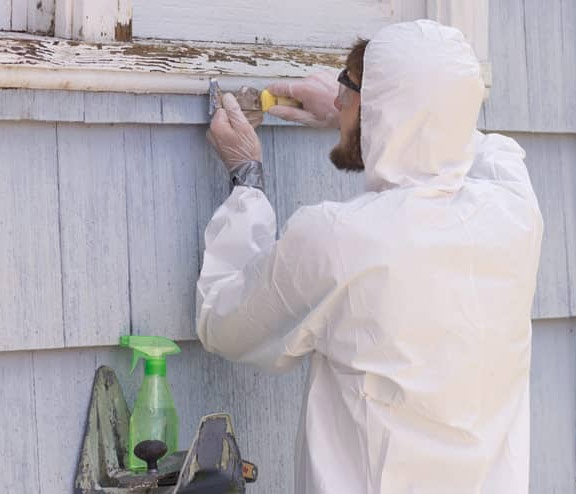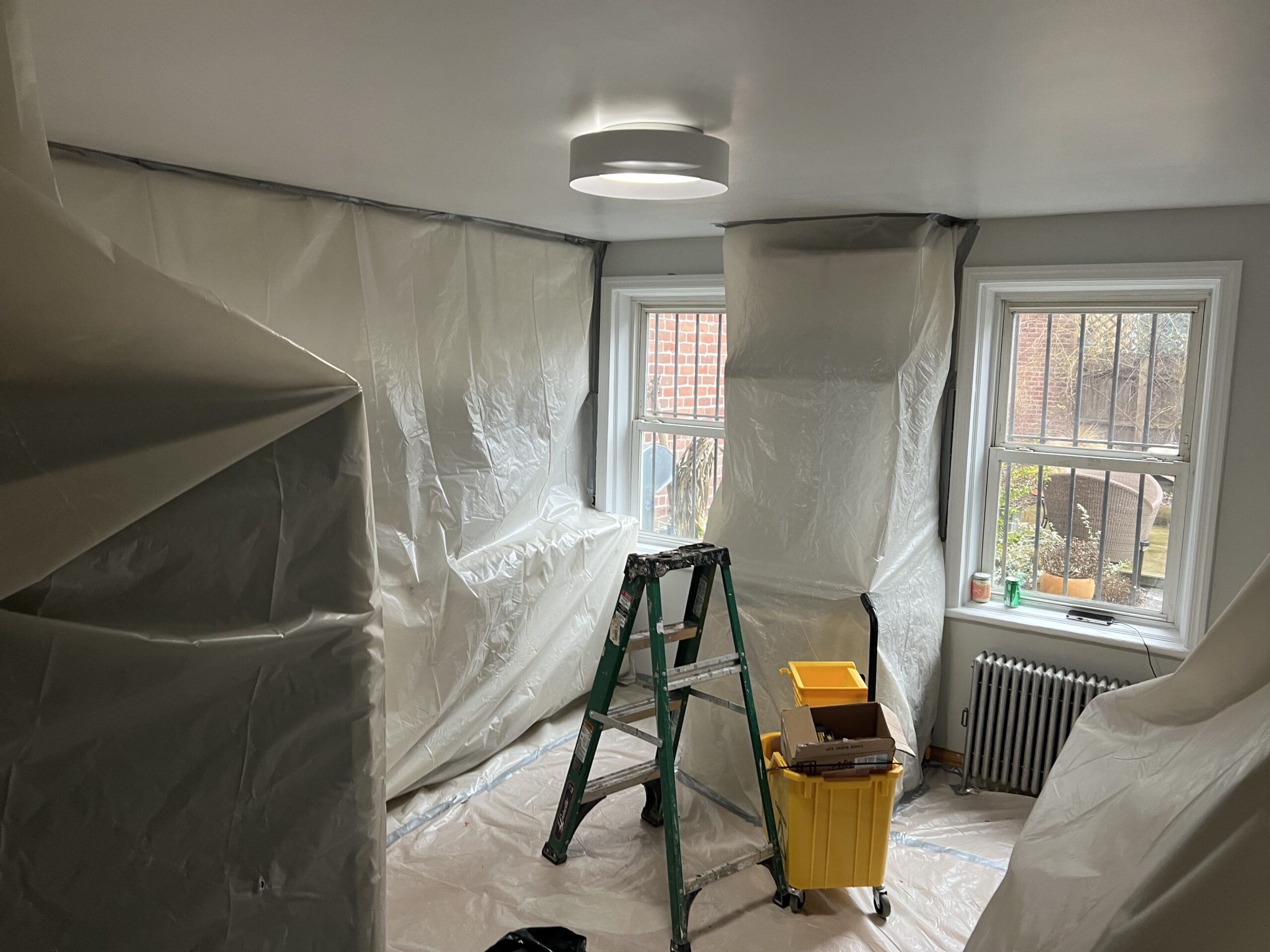NYC Lead Paint Removal Company-- Guaranteeing Safe and Lawful Conformity
NYC Lead Paint Removal Company-- Guaranteeing Safe and Lawful Conformity
Blog Article
Comprehensive Overview on Effective Lead Violation Elimination Strategies
In the world of ecological safety and security, addressing lead offenses demands a meticulous and structured approach. This thorough guide begins by highlighting the important preliminary actions of recognizing lead risks via sophisticated evaluation and screening techniques. The overview elaborates on the value of adhering to strict security procedures throughout the elimination procedure, including the use of correct PPE and separating affected locations.
Recognizing Lead Hazards
Identifying lead threats is an essential initial step in reducing the dangers associated with lead exposure. Lead, a toxic steel, can be present in various environmental mediums, consisting of paint, soil, water, and dust.
The first stage in recognizing lead dangers involves comprehending common lead sources within the constructed atmosphere. Structures constructed prior to 1978 are particularly susceptible due to the prevalent use lead-based paint throughout that period. Furthermore, soil contamination can occur from weakening outside paint, industrial emissions, or historical use leaded gas.
Another substantial source is lead piping and pipes components, which can leach lead right into alcohol consumption water. Durable goods such as toys, ceramics, and imported products might additionally have dangerous lead levels. Significantly, occupational atmospheres and hobbies involving lead can track impurities into homes.
Assessment and Screening
When dealing with lead threats, efficient evaluation and screening are extremely important. This vital step guarantees the recognition and quantification of lead presence, consequently directing subsequent removal efforts. Initial evaluation generally includes an aesthetic evaluation to determine prospective lead sources, such as deteriorating paint or infected dust. This is matched by more rigorous testing methods to identify the extent of contamination.

Dirt wipe sampling is one more vital strategy, specifically in household setups. By accumulating examples from floorings, windowsills, and various other surfaces, this method supplies insights right into potential exposure threats. Furthermore, soil screening around structure borders is necessary to find lead contamination that might pose threats, especially to youngsters.
Safe Removal Treatments
Upon finishing comprehensive assessment and screening, implementing safe removal treatments is the next critical phase in dealing with lead hazards. This procedure makes sure that lead-contaminated materials are successfully and securely removed, decreasing view publisher site danger to both employees and locals. The initial step involves isolating the afflicted area making use of plastic bed linen and proper sealing strategies to avoid the spread of lead dirt.
Employees should don suitable individual protective tools (PPE), consisting of respirators, handwear covers, and disposable coveralls, to reduce direct exposure. Using specialized tools and wet approaches, such as damp fining sand or making use of HEPA-filtered vacuum cleaners, lowers the dispersion of lead bits. It is vital to avoid dry sanding or abrasive blowing up, as these techniques can create dangerous lead dirt.
Garbage disposal is one more important component; all polluted products must be securely bagged and labeled according to EPA and local guidelines. In addition, detailed cleansing of the workspace with HEPA vacuums and damp wiping ensures the elimination of recurring lead particles.
Post-Removal Confirmation

Verification of effective lead removal, known as post-removal confirmation, is important to make certain the safety and security and habitability of the remediated location. This examination makes certain that all recognized sources of lead have actually been resolved and that no noticeable indications of contamination remain.
Adhering to the visual assessment, environmental tasting is website here conducted. This entails collecting dust, soil, and often water samples from the remediated area. Approved laboratories examine these samples to determine lead levels, guaranteeing they drop listed below the safety limits established by regulative bodies such as the Environmental Protection Firm (EPA)
On top of that, air high quality screening might be performed to find air-borne lead fragments, specifically in situations where considerable lead-based paint removal or restoration has happened. The results of these tests supply quantitative information confirming that the lead levels are within allowable restrictions.
Eventually, post-removal verification acts as a vital checkpoint, verifying the performance of the lead reduction initiatives and guarding the health of occupants and click for source site visitors.
Safety Nets and Upkeep

A key safety net includes making use of lead-safe licensed service providers for any kind of restoration, repair service, or painting tasks. These specialists are trained in methods that minimize lead dirt and particles. In addition, keeping coloured surfaces to avoid breaking or peeling is important, as deteriorating paint can release lead fragments into the atmosphere.
Educational initiatives targeting homeowner and tenants concerning the threats of lead and the relevance of reporting any possible threats can further enhance precautionary efforts. Routine cleaning using HEPA vacuum cleaners and wet wiping strategies can significantly lower lead dirt accumulation.
Verdict
In recap, reliable lead infraction removal requires a careful strategy including thorough evaluation, accurate screening, and stringent removal procedures. Guaranteeing safety via proper isolation and personal safety devices remains vital. Post-removal verification by means of environmental tasting and air quality testing confirms compliance with recognized safety and security standards. Continuous inspections and upkeep are necessary to mitigate future lead dangers, therefore securing public wellness and making sure continual compliance with regulative requirements.
Report this page